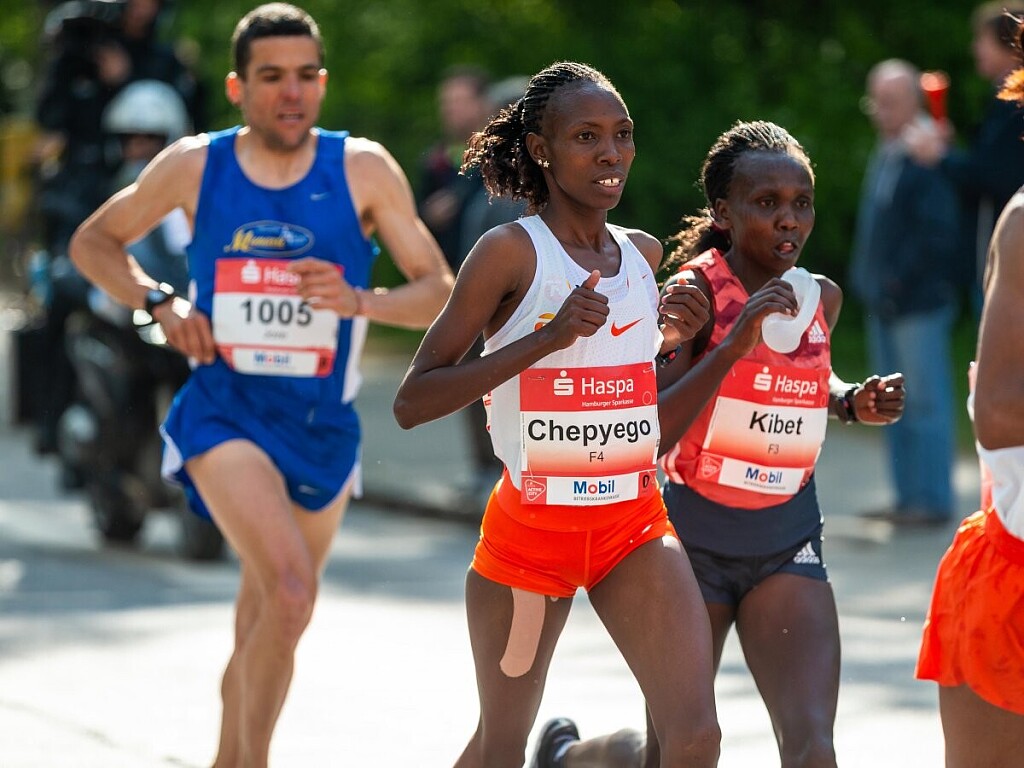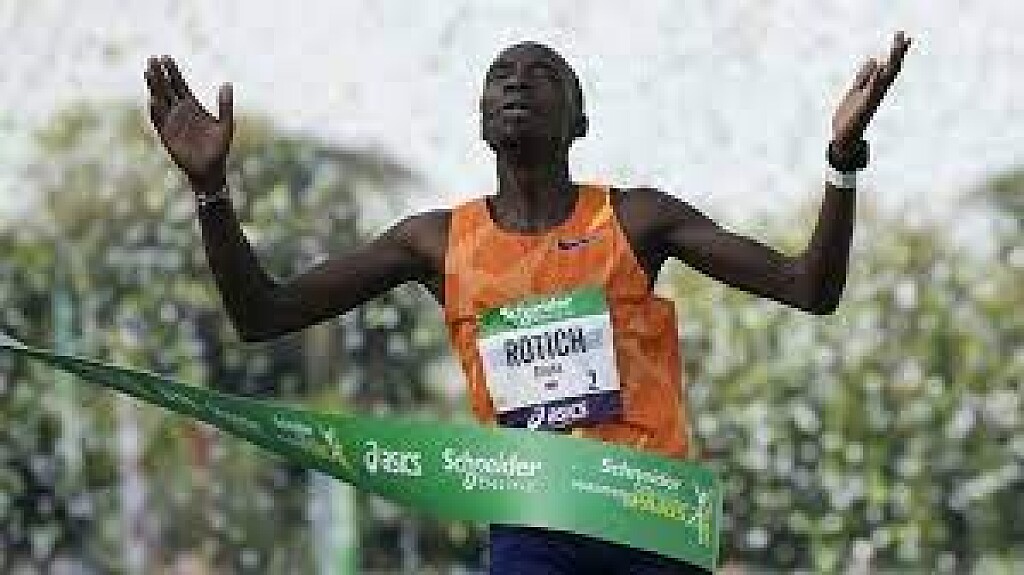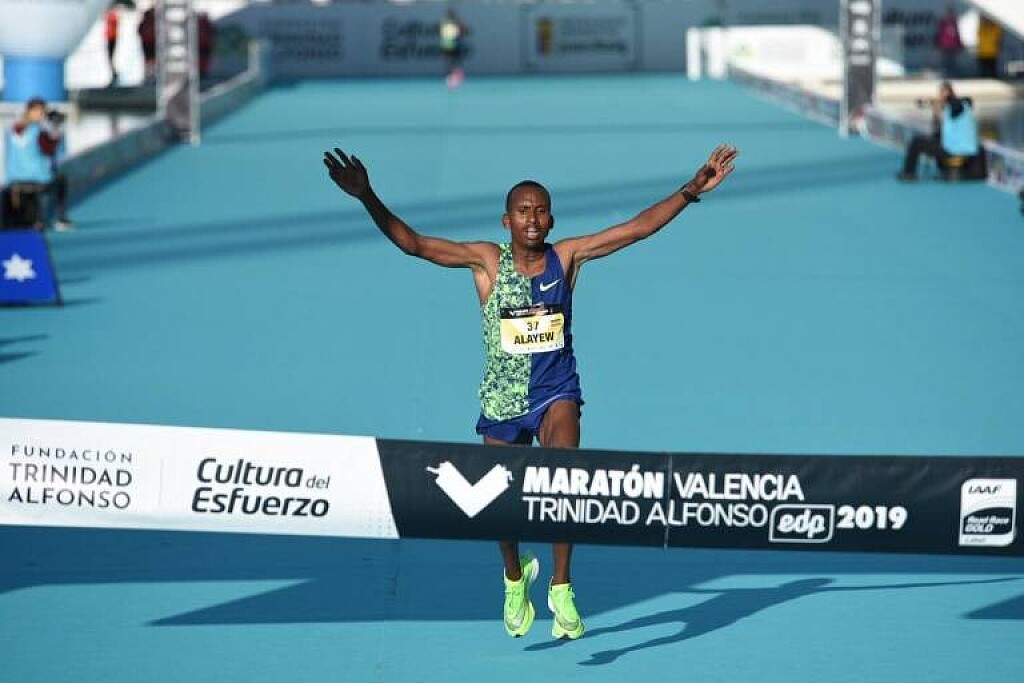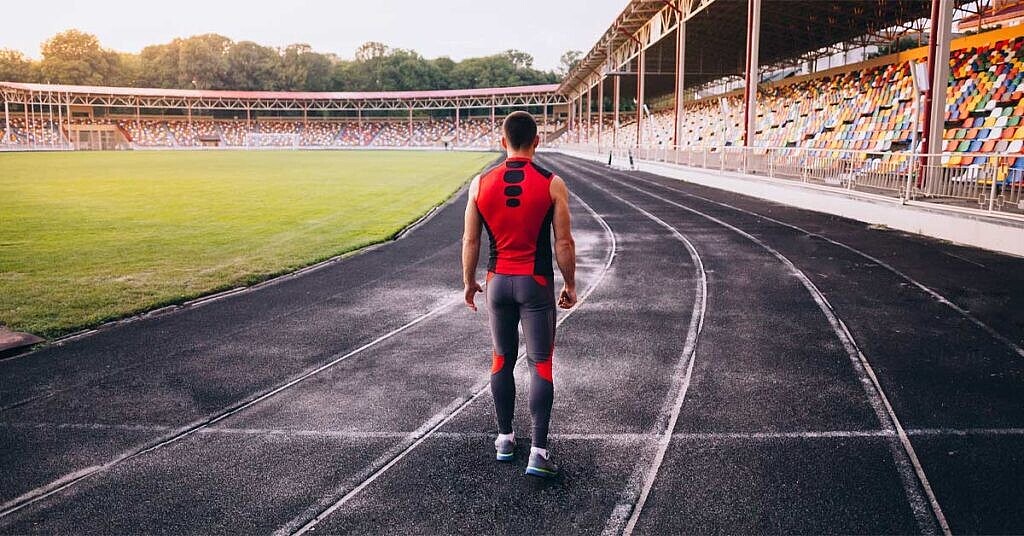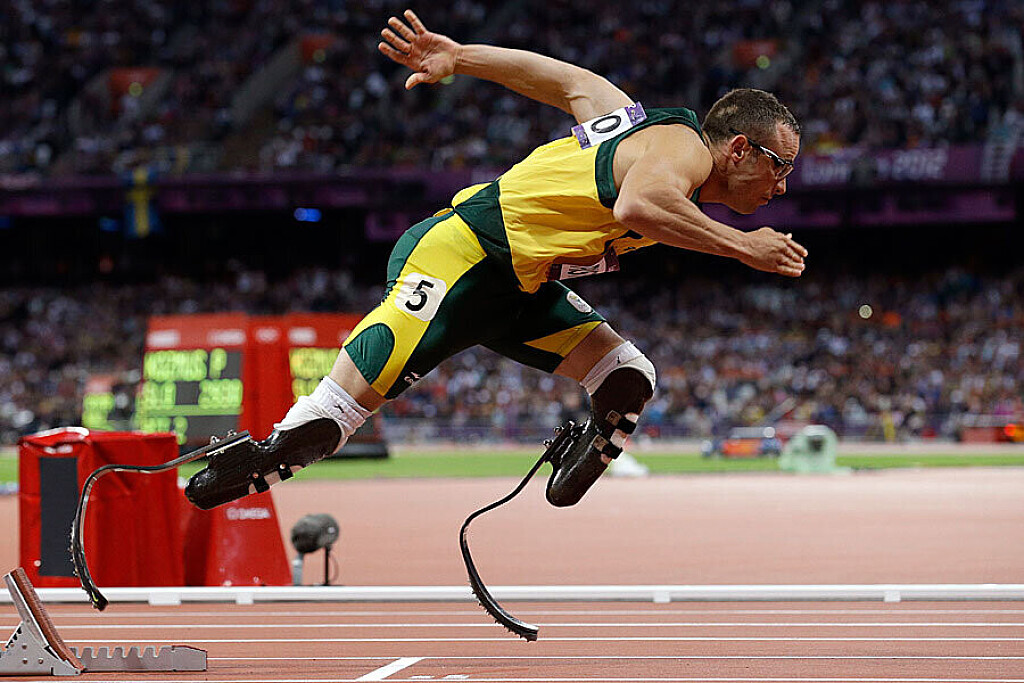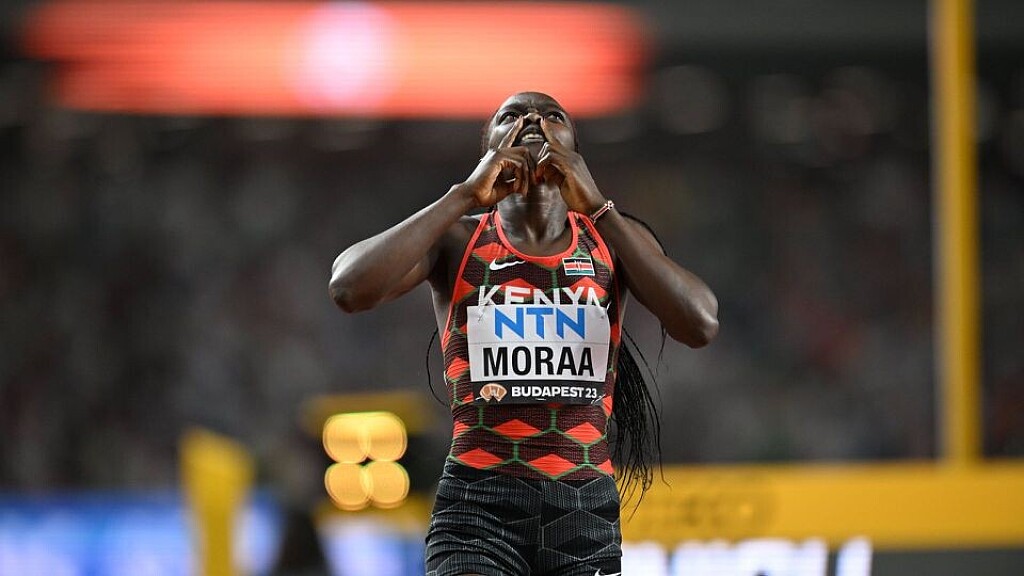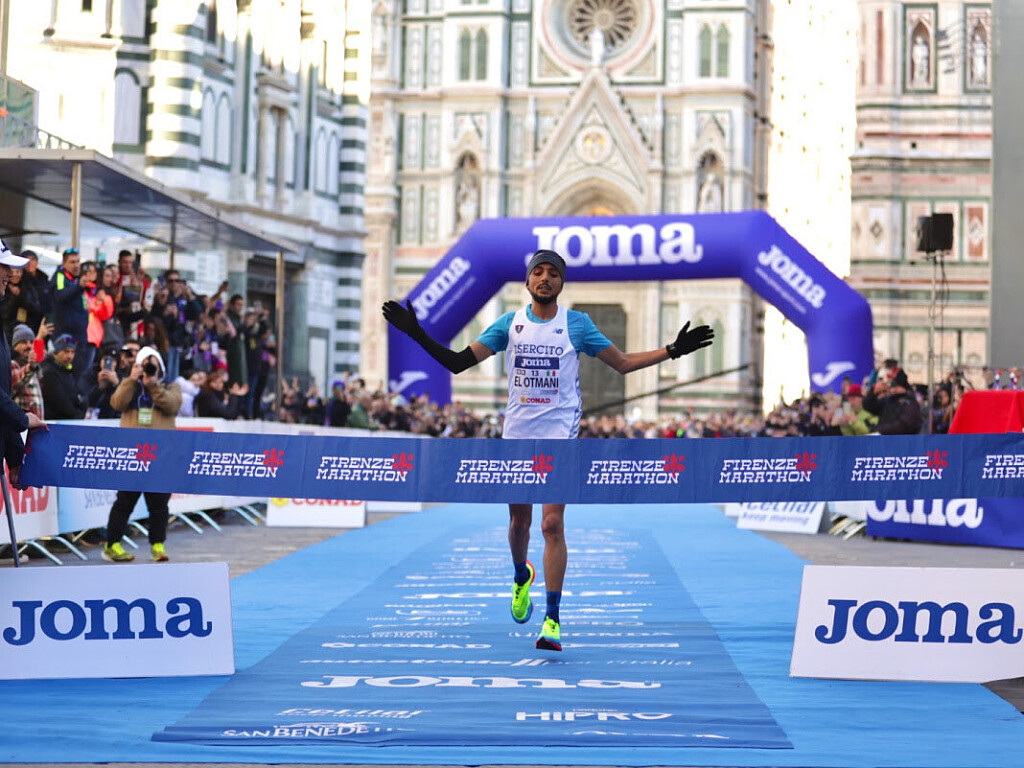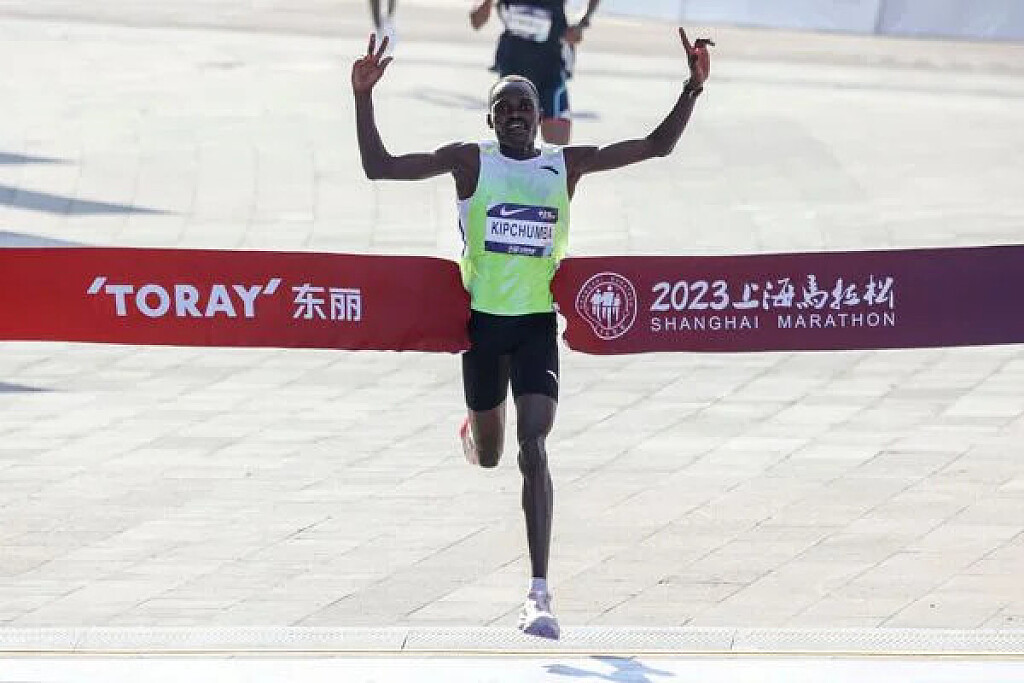Running News Daily
Top Ten Stories of the Week
12/2/2023
These are the top ten stories based on views over the last week.
Selly Chepyego highlights Shanghai marathon
Selly Chepyego highlights the Kenyan contingent at Sunday's Shanghai marathon, a World Athletics Platinum Label road race.
The trio of Betty Chepkwony, Emily Arusio and debutant Sandrafelis Chebet are also in the mix as Kenya's quest for glory takes them to the Asian continent.
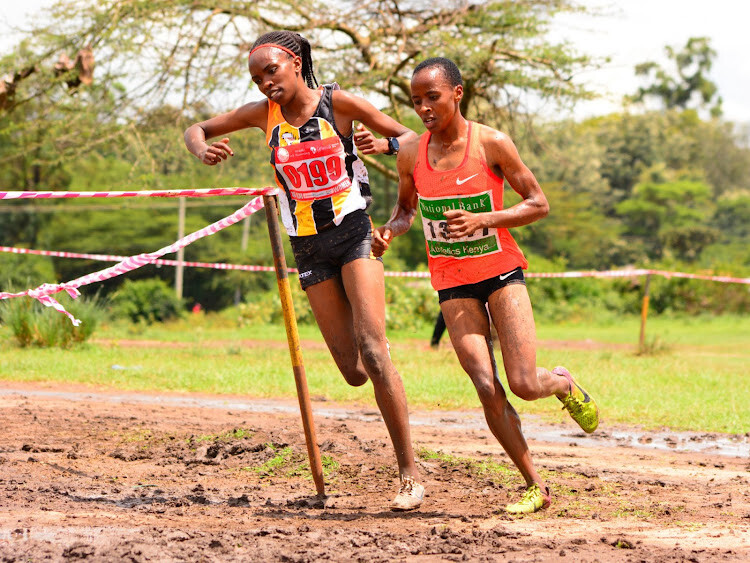
The quintet of sub-2:21 runners will be gunning for the course record of 2:20:36 set by Ethiopian Yebrgual Melese in 2018.
The 22-year-old Tadu Teshome of Ethiopia, owning a PB of 2:17:36, is the favourite in Shanghai.
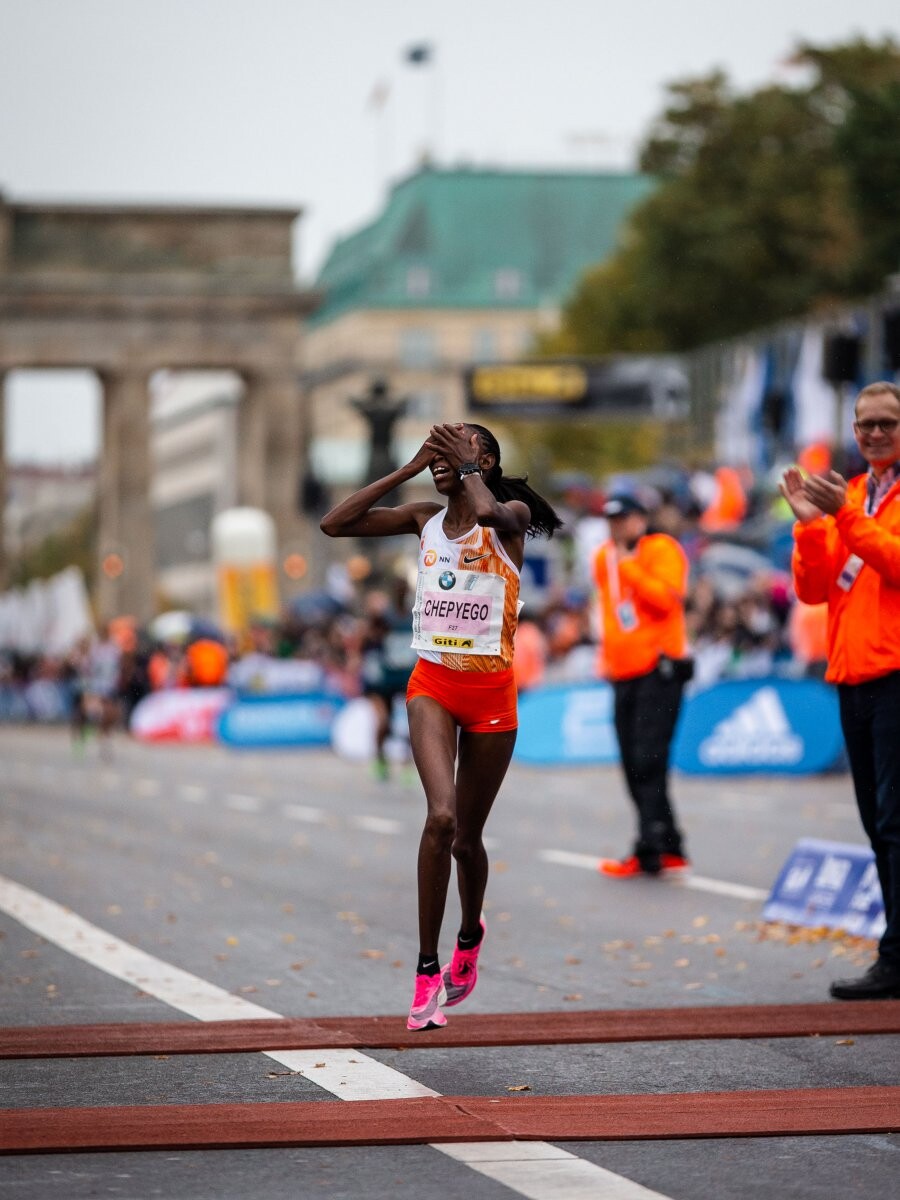
The 2022 Copenhagen Half Marathon champion, who is also a former winner of marathons in Barcelona and Riyadh, achieved her career-best mark last year in Valencia. She clocked 2:20:04 to finish fifth last month in Chicago.
Bahrain’s national record-holder Eunice Chumba and Chepyego could be the biggest threats to Teshome.
The 30-year-old Chumba, a 2:20:02 performer, has remained unbeaten after two races in 2023, clocking 2:20:31 to win in Rotterdam in April and winning the gold medal at the Asian Games in Hangzhou early last month.
Apart from her victory in Hangzhou, Chumba has gained vast experience of winning in China, claiming titles in Dongying and Liupanshui, and at the 2019 Military Games in Wuhan.
Now aged 38, Chepyego is still making progress. The 2014 World Half Marathon bronze medallist set a PB of 2:20:03 to finish second in Barcelona in March and clocked 2:27:09 to place seventh at the World Athletics Championships in Budapest.
Other title contenders include Ethiopian Etagegne Woldu, who set her PB of 2:20:03 last year in Valencia, and Eritrea’s Nazret Weldu, who finished eighth, one place behind Chepyego, in 2:27:23 in Budapest. Before that she improved the national record to 2:20:29 to finish fourth at the World Championships in Oregon in July 2022.
Defending champion Zhang Deshun of China is also toeing the line. Last year Zhang produced a 2:28:17 victory in Shanghai. In March, she improved her PB to 2:24:05 to finish fourth in Nagoya before finishing second behind Chumba at the Hangzhou Asian Games in 2:27:55.
(11/25/23) Views: 132Evans Ousuru
Can You Harness Anger to Reach Performance Goals?
Focusing on a mix of emotions, including negative ones, could have an effect on your running, according to a recent study.
A series of studies show that anger, despite people viewing it as a negative emotion, can actually help you tackle challenging goals.
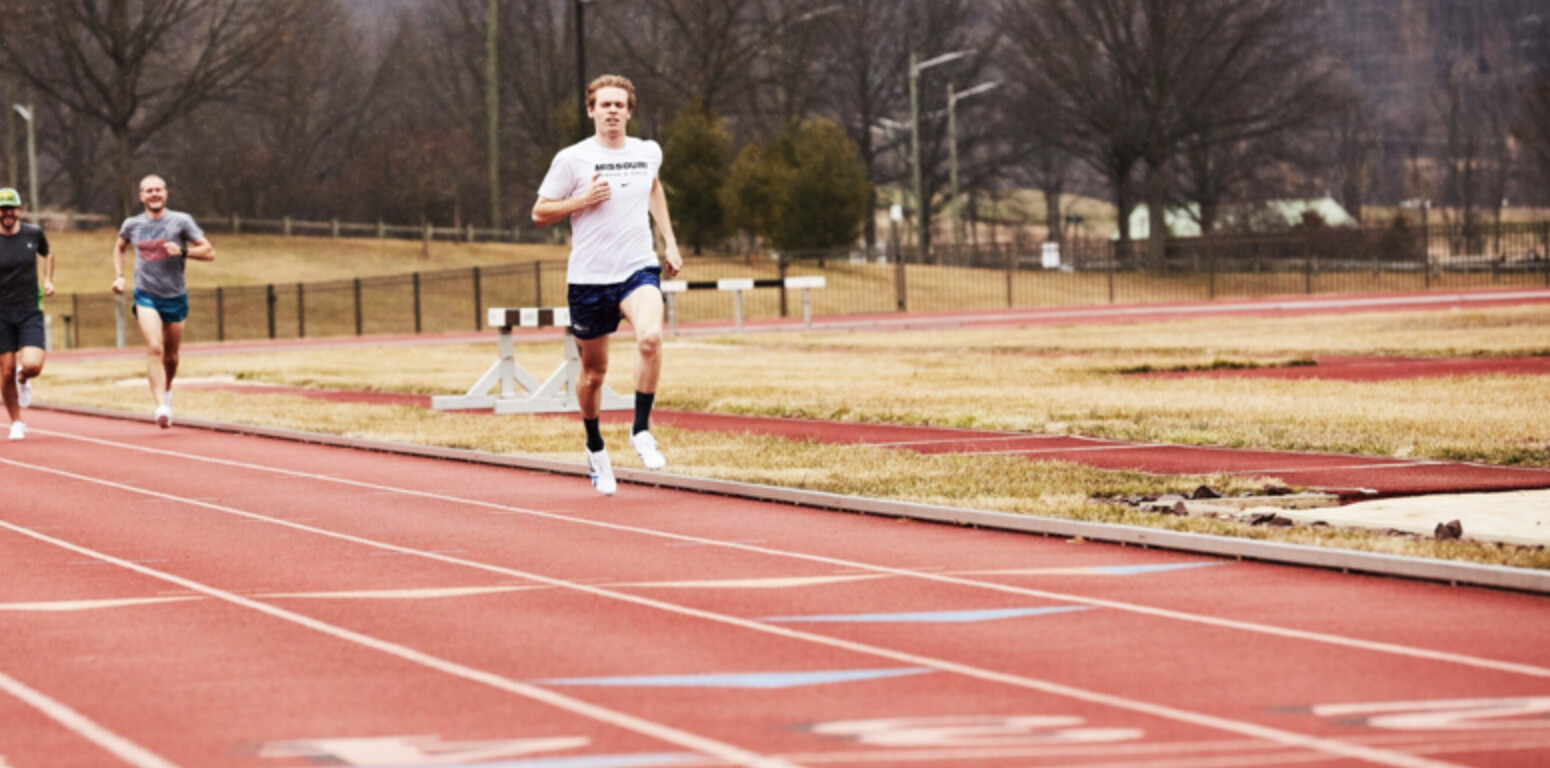
Experts suggest instead of trying to combat anger by thinking positive, using that feeling as fuel for your runs.
Tapping into emotional health and visualization isn’t a new concept in sports science. For example, one study published in 2020 suggests positive emotions, like hope, can give athletes a better sense of control and less anxiety during competition. But recent research suggests it isn’t just the uplifting feelings that can make a difference. Even emotions considered negative, like anger, may have a place in reaching performance goals.
The new investigation published in the Journal of Personality and Social Psychology notes that people often believe a state of happiness is ideal, but recent studies have shown that a mix of emotions that include negative states can result in the best outcomes.
To better understand how this blend might work for reaching goals, including athletic aims, researchers reviewed experiments on emotions that involved more than 1,000 participants and those that involved eliciting an emotional response or a neutral state. Emotions ranged from amusement and desire to anger and sadness.
After identifying their emotional state, participants would do a specific task, such as solving word puzzles or trying to achieve a high score on a skiing game. In all of the experiments, anger consistently improved performance compared to a neutral condition or more positive emotions, according to lead author Heather Lench, Ph.D., professor in the department of psychological and brain sciences at Texas A&M University.
That seemed to be true most often when the goals were especially challenging. For example, when two versions of the skiing game were used—one with a single, easier task like doing a jump and another that involved avoiding flags on a difficult slalom course—anger didn’t affect jump performance, she told Runner's World. But when it came to mastering the tougher course, anger seemed to spur participants into being more focused, and even having faster reaction times.
“The results here demonstrate that anger may increase effort toward attaining a desired goal, and that could result in greater success,” Lench said. “Another takeaway is that it may be helpful to change your perception about the use of negative emotions.”
She said that many people see negative emotions like anger as maladaptive—such as a feeling that allowing yourself to be angry during a run will cause you to be distracted or to slow down—but the opposite could be true. Harnessing that emotion and using it to spur your athletic pursuits could be a way to maintain motivation and to tackle particularly challenging goals, according to Lench.
One important distinction here is between anger and aggression, although those are sometimes perceived as synonyms. Anger is an emotion, while aggression is a behavior or action that can be destructive or violent, according to Gregg Henriques, Ph.D., clinical psychologist and author of A New Unified Theory of Psychology.
He told Runner’s World that it can be tricky to feel the emotion without having it fuel the behavior. A technique for that is to simply identify an emotion as it’s happening and visualize using that for a specific goal (like running a quick pace for your next workout!) rather than a catalyst for hostility, he suggested.
“Sometimes, anger is a response if you perceive obstacles to be overwhelming or insurmountable,” added Lench. “Using that anger instead of trying to cover it with positive emotions may be a better strategy for overcoming those obstacles and reaching your goals.”
(11/26/23) Views: 111Runner’s World
Elisha Rotich to lead Kenya's medal hunt at Shanghai marathon
Elisha Rotich will lead the Kenyan charge for medals at the Shanghai Marathon on Sunday where assaults on both the men's and women's course records are expected.
The Shanghai Marathon is a World Athletics Platinum Label road race.
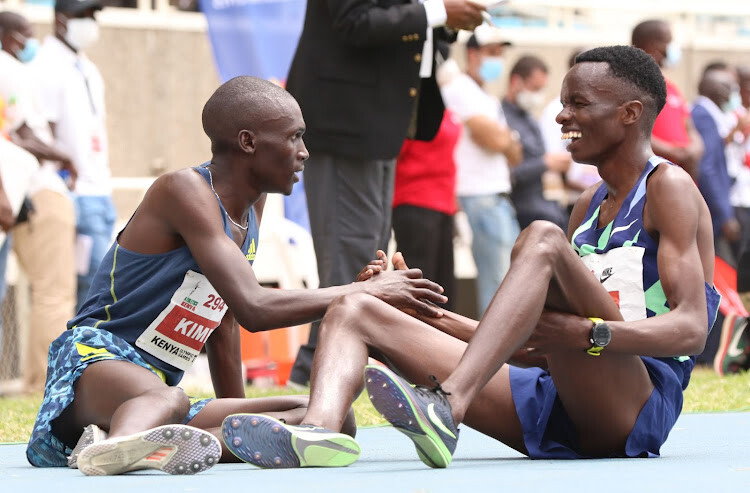
A total of 12 runners in the men’s field have personal bests inside the 2:07:14 course record set by Kenya’s Paul Lonyangata back in 2015.
Rotich has a personal best of 2:04:21. He will have Nicholas Kirwa (2:05:01), Moses Kibet (2:05:20), Eric Kiptanui (2:05:47), Enock Onchari (2:05:47) and Kenneth Keter (2:06:05) for company.
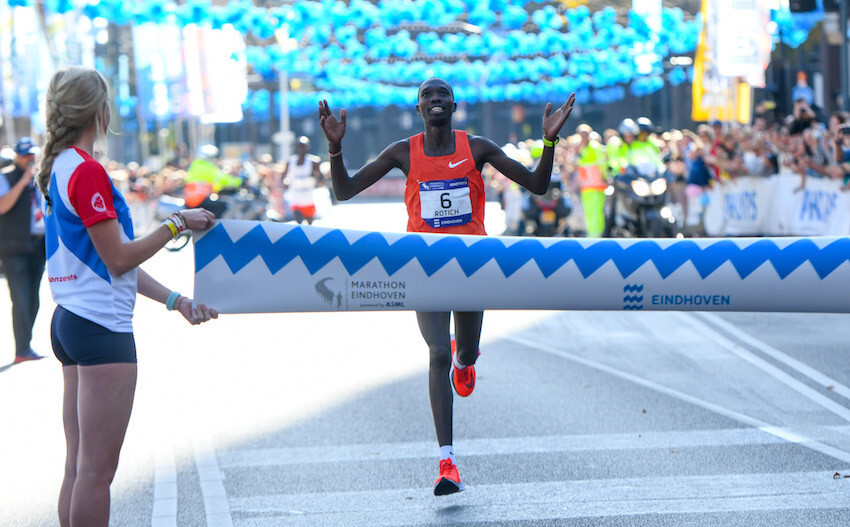
Others are Solomon Kirwa Yego (2:06:24), Victor Kipchirchir (2:06:54) Philimon Kiptoo Kipchumba (2:07:28), Moses Kemei (2:09:26) and Sammy Kosgei (2:11:54)
Kinde Atanaw of Ethiopia is the fastest entrant courtesy of his 2:03:51 PB set four years ago in Valencia, where he staged a convincing victory in his debut over the classic distance.
The 30-year-old went on to register two sub-2:06 marks in 2021 and 2022 respectively, including a fourth-place finish at the London Marathon last year, but he failed to finish the race in London this year in what has been his only outing of 2023 so far.
Rotich, 33, won the Paris Marathon two years ago with a career-best of 2:04:21 and he also has five other marathon victories to his name, but he has yet to prove his shape so far in 2023.
Ethiopia’s Abayneh Degu, a 2:04:53 performer, will chase his first career marathon title in Shanghai. He clocked 2:08:28 in Osaka in February and finished fifth in China’s Lanzhou in 2:12:57 five months ago.
Fellow Ethiopian Tadu Abate is one of the most in-form runners in the men’s field. He has achieved sub-2:06 results in both of his two races of the year so far, including improving his PB to 2:05:38 to finish sixth in Tokyo.
Like Abate, Kenya’s Enock Onchari will also arrive in Shanghai with high spirits. The 24-year-old achieved his PB of 2:05:47 in Seville in February and celebrated his first-ever marathon victory in 2:07:52 one month later in Wuxi.
The field also includes three other sub-2:06 runners, all from Kenya: Nicholas Kirwa (2:05:01), Moses Kibet (2:05:20) and Eric Kiptanui (2:05:47).
The field of local athletes is headed by Jia Erenjia, the third-place finisher in Shanghai last year and winner of the 2020 race. He improved his PB to 2:09:54 in Berlin two months ago.
(11/25/23) Views: 106Evans Ousuru
Course records under threat at Shanghai Marathon
Assaults on both the men's and women's course records are expected at the Shanghai Marathon, a World Athletics Platinum Label road race, on Sunday (26).
A total of 12 runners in the men’s field have personal bests inside the 2:07:14 course record set by Kenya’s Paul Lonyangata back in 2015.
Kinde Atanaw of Ethiopia is the fastest entrant courtesy of his 2:03:51 PB set four years ago in Valencia, where he staged a convincing victory in his debut over the classic distance.
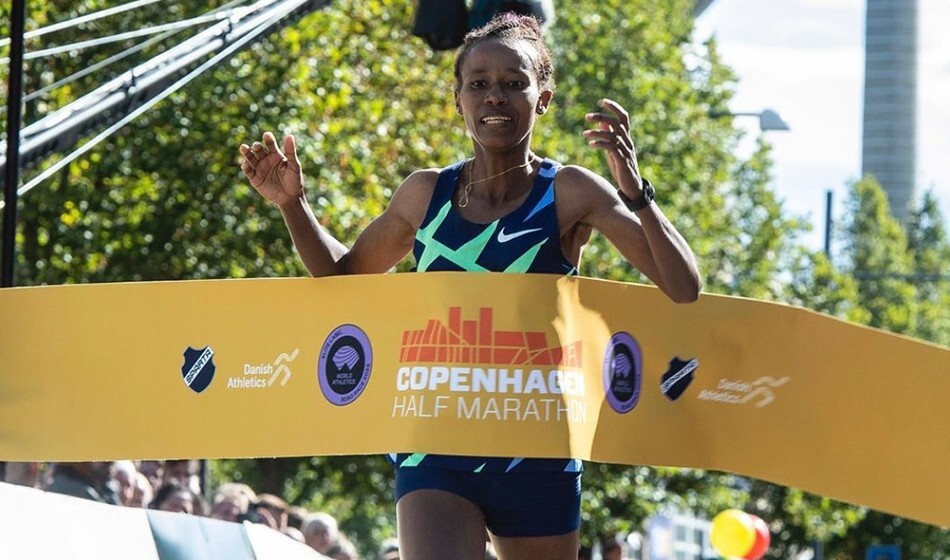
The 30-year-old went on to register two sub-2:06 marks in 2021 and 2022 respectively, including a fourth-place finish at the London Marathon last year, but he failed to finish the race in London this year in what has been his only outing of 2023 so far.
Elisha Rotich will lead the Kenyan charge. The 33-year-old won the Paris Marathon two years ago with a career best of 2:04:21 and he also has five other marathon victories to his name, but he has yet to prove his shape so far in 2023.
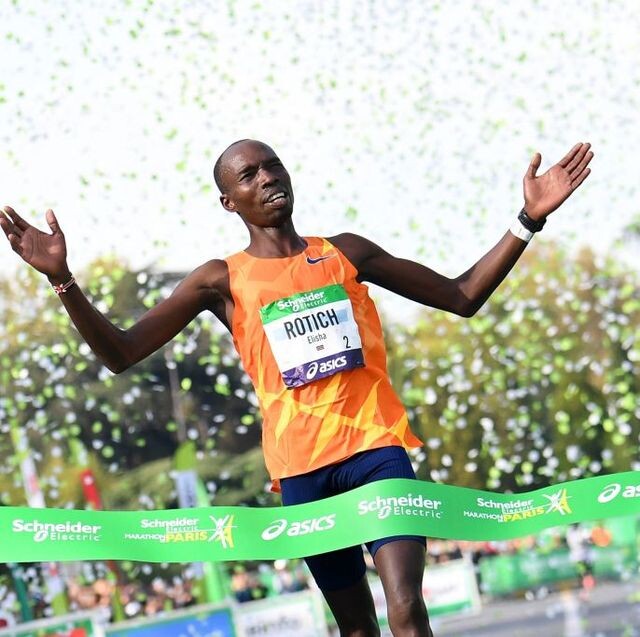
Ethiopia’s Abayneh Degu, a 2:04:53 performer, will chase his first career marathon title in Shanghai. He clocked 2:08:28 in Osaka in February and finished fifth in China’s Lanzhou in 2:12:57 five months ago.
Fellow Ethiopian Tadu Abate is one of the most in-form runners in the men’s field. He has achieved sub-2:06 results in both of his two races of the year so far, including improving his PB to 2:05:38 to finish sixth in Tokyo.
Like Abate, Kenya’s Enock Onchari will also arrive in Shanghai with high spirits. The 24-year-old achieved his PB of 2:05:47 in Seville in February and celebrated his first-ever marathon victory in 2:07:52 one month later in Wuxi.
The field also includes three other sub-2:06 runners, all from Kenya: Nicholas Kirwa (2:05:01), Moses Kibet (2:05:20) and Eric Kiptanui (2:05:47). The field of local athletes is headed by Jia Erenjia, third-place finisher in Shanghai last year and winner of the 2020 race. He improved his PB to 2:09:54 in Berlin two months ago.
Teshome heads women’s field
In the women’s race, a quintet of sub-2:21 runners will be gunning for the course record of 2:20:36 set by Ethiopian Yebrgual Melese in 2018.
The 22-year-old Tadu Teshome of Ethiopia, owning a PB of 2:17:36, is the favourite in Shanghai. The 2022 Copenhagen Half Marathon champion, who is also a former winner of marathons in Barcelona and Riyadh, achieved her career best mark last year in Valencia. She clocked 2:20:04 to finish fifth last month in Chicago.
Bahrain’s national record-holder Eunice Chumba and Selly Chepyego of Kenya could be the biggest threats to Teshome. The 30-year-old Chumba, a 2:20:02 performer, has remained unbeaten after two races in 2023, clocking 2:20:31 to win in Rotterdam in April and winning the gold medal at the Asian Games in Hangzhou early last month.
Apart from her victory in Hangzhou, Chumba has gained vast experience of winning in China, claiming titles in Dongying and Liupanshui, and at the 2019 Military Games in Wuhan.
Now aged 38, Chepyego is still making progress. The 2014 world half marathon bronze medallist set a PB of 2:20:03 to finish second in Barcelona in March and clocked 2:27:09 to place seventh at the World Athletics Championships in Budapest.
Other title contenders include Ethiopian Etagegne Woldu, who set her PB of 2:20:03 last year in Valencia, and Eritrea’s Nazret Weldu, who finished eighth, one place behind Chepyego, in 2:27:23 in Budapest. Before that she improved the national record to 2:20:29 to finish fourth at the World Championships in Oregon in July 2022.
Defending champion Zhang Deshun of China is also toeing the line. Last year Zhang produced a 2:28:17 victory in Shanghai. In March, she improved her PB to 2:24:05 to finish fourth in Nagoya before finishing second behind Chumba at the Hangzhou Asian Games in 2:27:55.
(11/24/23) Views: 105World Athletics
Three acceleration drills to unleash your maximum velocity
Have you ever watched an efficient runner pick up the pace, with a smooth, seemingly effortless drive forward as their legs and arms slice smoothly through the air? Acceleration is a skill that can be practiced and perfected, and will improve running performance, even if you don’t plan on racing the 100-meter dash.
Renowned speed coach and editor of the book Developing Speed, Ian Jeffreys, explains that whole-body acceleration involves subtle coordination. “Although acceleration technique may vary from athlete to athlete because of size and other physical characteristics, there are coachable technical factors that all athletes can develop.” Add a few sets of these drills into your workout after your warmup, or devote a whole short speed session to them.
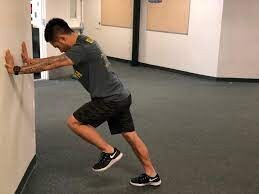
Wall drive drill
This drill helps you master your forward lean, perfect if you’re practicing for short distances or want to be able to really drive your race home. Jeffreys suggests starting this one with slow, controlled movements, and increasing speed as you build competence.
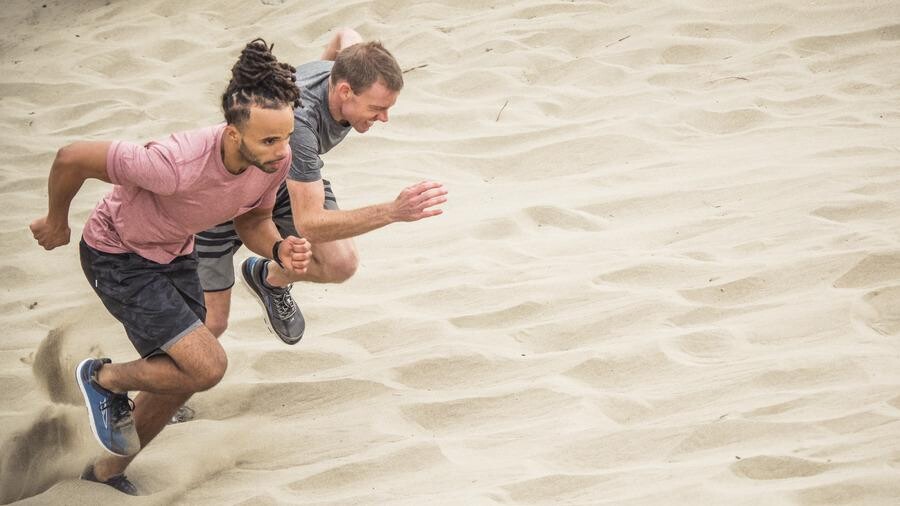
Stand facing a wall with feet shoulder-width apart, and place your hands on the wall at chest height.
Step back, extending one leg behind you.
Strive to keep your body in a straight line from head to heel while you drive your front knee forward, pushing off the back foot.
Alternate legs, focusing on bringing that front knee up with explosive power.
Sprint starts from the ground
Because you start on the ground for this one, as rise up from the facedown position you will naturally begin striding with your body low to the ground, pushing back and assuming a forward lean. This drill is perfect for practicing on grass; try an indoor track or turf in the colder months, or modify by taking a crouch position to start.
Lie right on the ground with hands planted.
Have a friend give a command to get you started, or count down from three on your own. Push yourself up to sprint as fast as possible to a set point straight ahead. Keep your sprint short in this one, from five to 30 meters.
Focus on powerful, explosive movements off the start, driving off your back leg to shoot forward.
Incline Sprint
Jeffreys says the added resistance of the incline here provides a safe and effective way to stress the strength and power demands of acceleration drills, while the upward slope will promote an increased awareness of knee drive and full extension. These are perfect to take indoors to the treadmill.
You’ll need a low incline or hill (five to 10 degrees). Keep these short–20 seconds at maximum.
Stand with a slight forward lean at the base of your hill, and sprint up the incline, emphasizing powerful strides.
Pump your arms vigorously to maximize momentum, and focus on that forward-leaning posture for optimal acceleration.
Repeat a few times, walking back to the start in between to recover.
Remember to focus on quality over quantity in these acceleration drills–maintaining strong, efficient form is essential, so keep your repeats short, fast and effective.
(11/27/23) Views: 104Keeley Milne
Double amputee Oscar Pistorius granted parole in girlfriend’s murder
Ten years after shooting and killing Reeva Steenkamp through a bathroom door in their home, double amputee runner and six-time Paralympic gold medalist Oscar Pistorius, 37, of South Africa is to be paroled and will be released from prison on Jan. 5, 2024.
On Valentine’s Day in 2013, Pistorius, known as the “Blade Runner,” fired numerous shots through a bathroom door in his home, killing Steenkamp, who was inside. The South African athletics star consistently denied intending to kill her, saying he shot her by mistake, believing she was an intruder.

Pistorius was initially convicted of the lesser charge of culpable homicide and sentenced to five years in prison, but after an appeal by prosecutors, he was found guilty of murder in 2016 and the sentence increased by a further six years. In 2017, according to a report in the Globe and Mail, his sentence was more than doubled, after South Africa’s Supreme Court of Appeal decided it was too lenient. In 2021, it was announced he would soon be eligible for parole, having served half his sentence.
Pistorius competed in the 2004 Summer Paralympics in Athens, finishing third overall in the T44 100m and winning gold in the 200m; he went on to compete again in 2008, winning gold in the 100m, 200m and 400m. He wanted to compete against able-bodied runners, but the IAAF (now World Athletics) ruled that runners using prosethetic blades had an unfair advantage and could not race against able-bodied athletes. Pistorius fought this ruling and won, and the rule was revoked, clearing the way for him to try to qualify for the 2008 Olympics in Beijing. (Further studies have also concluded that prosthetic blades do not confer an advantage over able-bodied runners.)
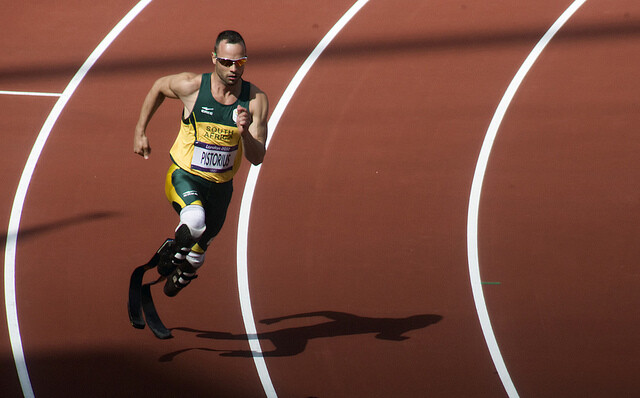
For various reasons, Pistorius did not compete in the Olympics until 2012 in London, where he became the first amputee runner to compete in an Olympic Games. He reached the semi-finals of the 400m, where he finished eighth, and competed in the 4x400m relay, where the South African squad finished eighth out of nine. Pistorius carried the South African flag in the closing ceremonies.
(11/24/23) Views: 103Anne Francis
Mary Moraa dreaming of breaking 800m world record soon
Mary Moraa has promised that she will attack the 800m world record very soon.
Reigning World 800m champion Mary Moraa has promised to go for the 800m world record very soon.
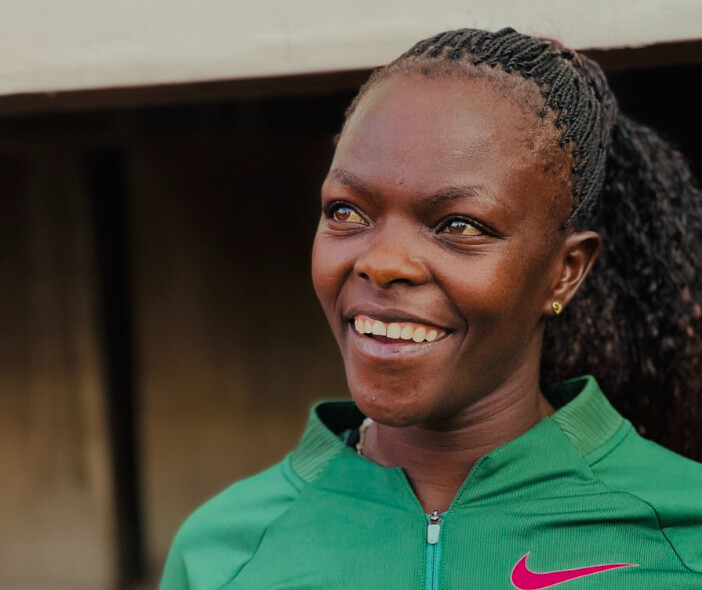
In a post on her Facebook page, Moraa shared a throwback photo of herself and double world record holder Faith Kipyegon. She was in awe of Kipyegon’s record-breaking spree and noted that she is an inspiration to many people.
She said: “When you step out in style with the world's middle distance track finest Faith Kipyegon. A great inspiration. Hii 800m World Record tutavunja siku moja...hivi karibuni (We shall one day break this 800m world record…very soon).”
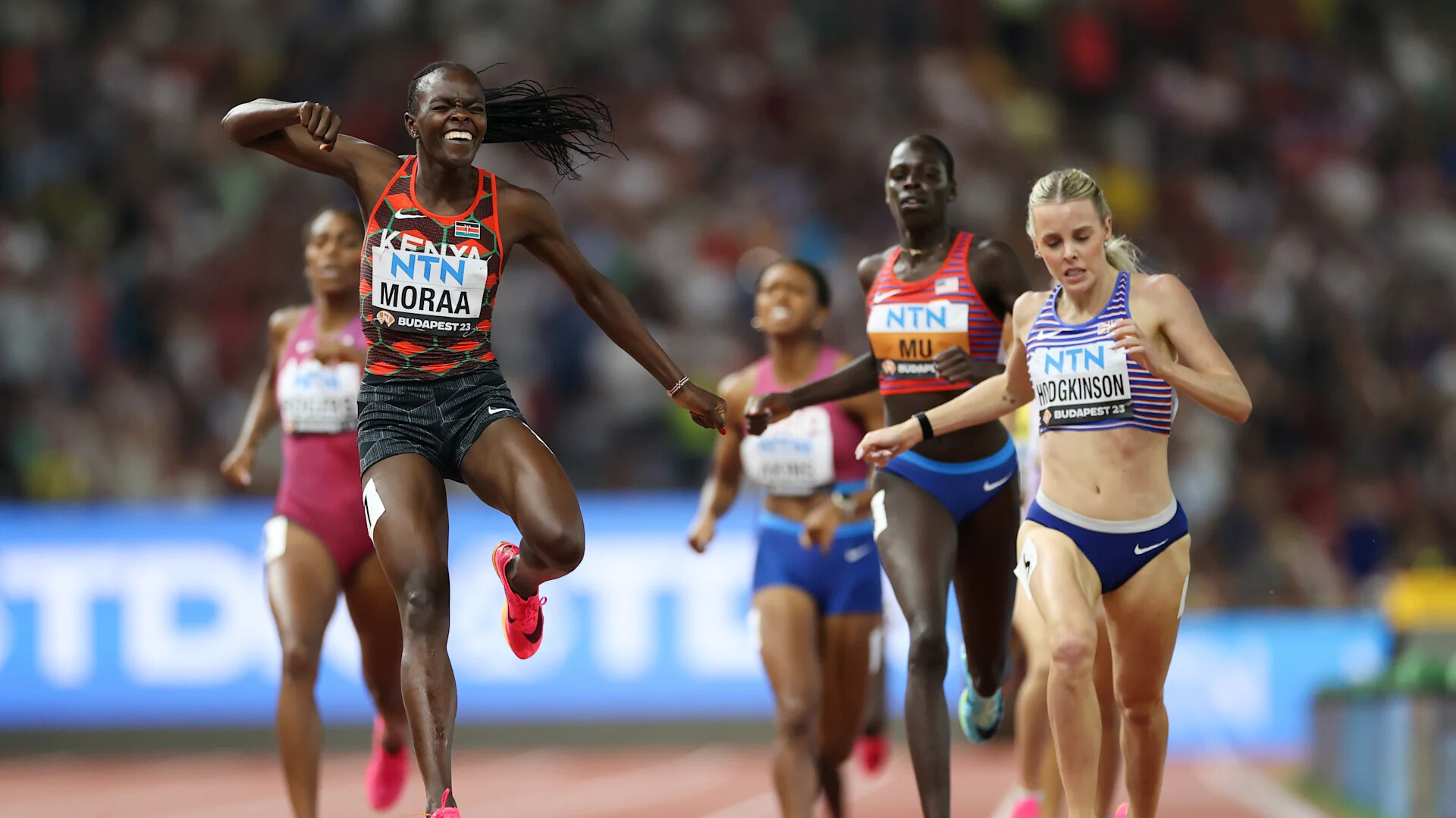
The women’s world record over the 800m stands at 1:53.28 and was set by Jarmila Kratochvílová 40 years ago.
She clocked the time on July 26, 1983, at the Olympiapark Meeting in Munich’s Olympic Stadium and has remained to be the oldest outdoor world record in the book.
On her part, Moraa’s Personal Best time currently stands at 1:56.03, a time she clocked to win the race at the World Championships in Budapest, Hungary.
By winning the title, she became just but the third Kenyan woman to win the 800m on the global stage. She comes after Janeth Jepkosgei and Eunice Sum who won the titles in 2007 and 2013 respectively.
She has also been banked on severally to break the 800m world record and affirming her fans that she would surely go for it is a sign of light at the end of the tunnel.
The reigning Commonwealth Games champion is gearing up for the Olympic Games in Paris, France next year where she hopes to extend her winning streak. This season, she only lost one 800m race, the Prefontaine Classic.
(11/24/23) Views: 101Abigael Wuafula
A guide for reflecting on your year in running
As the year comes to an end, it’s natural for runners to start thinking about setting goals for next year. We’re big believers in goal setting–but not without first pausing to reflect. Before diving head first into setting goals for the coming year, you should take stock of and celebrate your achievements from the past year. Not only will it help you set realistic goals for the upcoming year, but reflecting on the progress you’ve made will give you a boost of motivation as you gear up for your next training block. Follow these four steps to take stock of your year in running to set yourself up for success in the new year.
Review your running data
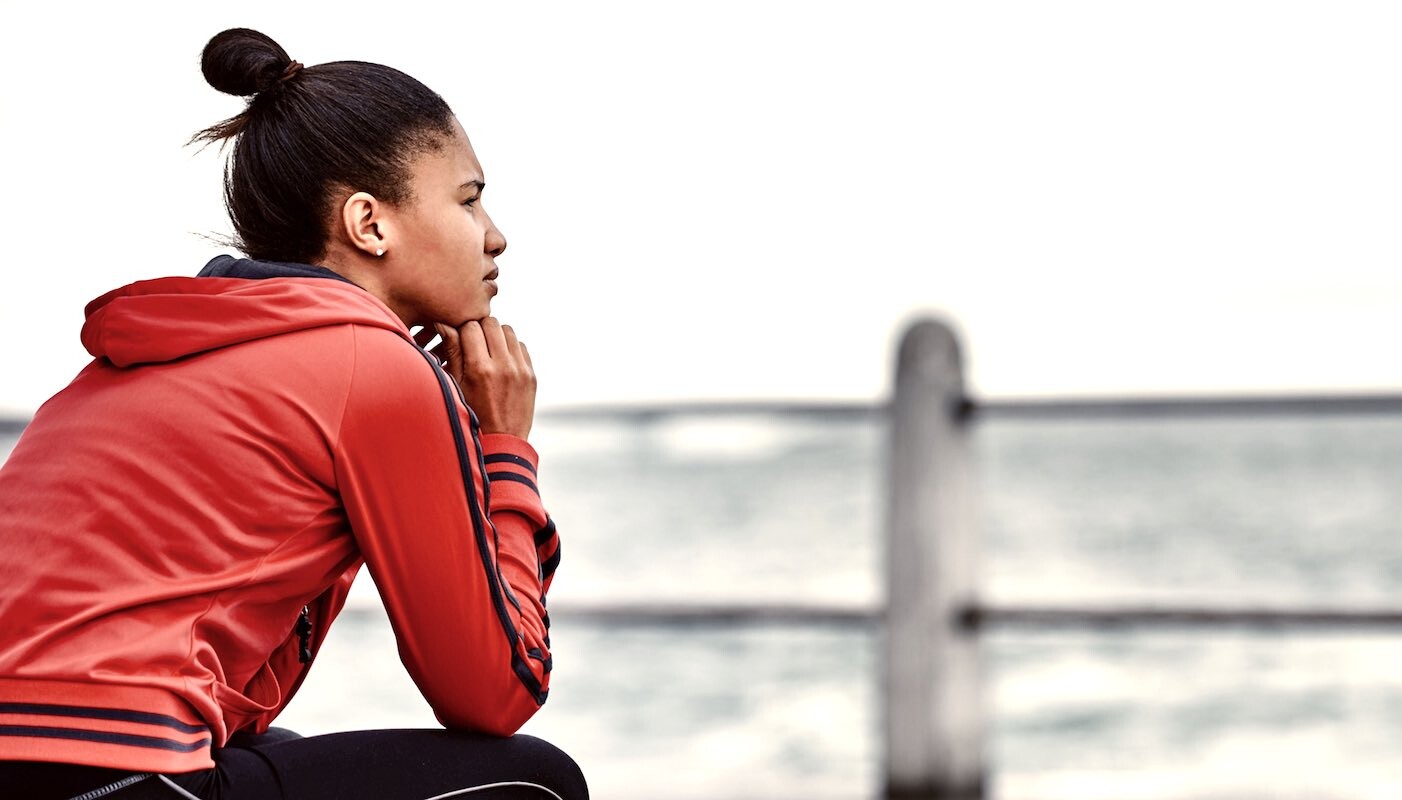
This one is for all of the data junkies out there. Take some time to gather your running data from the past year. This includes your race times, distance logs, Strava (if you use it), personal bests and any other relevant metrics. Reviewing this data will give you a clear picture of your progress throughout the year and help you appreciate all the things you achieved this year.
Reflect on your achievements

Beyond the numbers, reflect on any personal achievements or triumphs from the past year. Did you conquer a new road distance, or a challenging trail race? Complete your first marathon or half-marathon? Reach a new level of mental or physical toughness? Rehab an injury? Travel to a new place and explore it via running? Or maybe you met someone who had a positive influence on your relationshp with running. Acknowledge these triumphs and be proud of every little accomplishment or positive thing you experienced, no matter how small. (And remember that running is about more than just race results.)
Learn from your setbacks
Every runner faces setbacks and challenges; it’s how we bounce back that defines our growth. Reflect on any hurdles you encountered during the year—whether it was dealing with injuries, race disappointments or missed training opportunities. Use these experiences to identify areas for improvement and develop strategies for overcoming similar hurdles in the future.
Set realistic and meaningful goals for the future
After embracing your year of running, you’ll be better equipped to set goals for the upcoming year. However, ensure your goals are realistic, attainable, and aligned with your passion for running. Aim for a healthy balance between challenging yourself and avoiding burnout. Consider the lessons learned and areas of improvement identified earlier to guide your future goals. Remember, it’s about the journey as much as the destination.
(11/25/23) Views: 100Brittany Hambleton
Said El Otmani brings Italy back to the throne of the Firenze Marathon
It is finally Mameli's anthem that resonates on the occasion of the 39th Firenze Marathon . On the top step of the podium the national tricolor flies thanks to the blue Said El Otmani , king of this edition who wins in 2h12'39" twenty years after Angelo Carosi's last success in 2003. The athlete of Moroccan origins has improved the previous personal best of 2h13'23" set in Siena Ampugnano in 2021.
The leading group made up of Edwin Kipleting, Mohamed Baybat, Said El Otmani, Hillary Biwott Chemweno and Hillary Abdo Hussain passed the 5km in 15'44”. The positions remained unchanged at 10 km in 31'18” and at 15 km in 46'56”. Baybat took the lead together with El Otmani at the 25km mark in 1h17'36”. Baybat and Otmani consolidated their position at the 30km passage 1h32'25” with a twelve second lead over Chemweno. El Otmani made the decisive break at 35 km, passing alone in 1h47'47” with a minute and 18 seconds advantage over Chemweno.
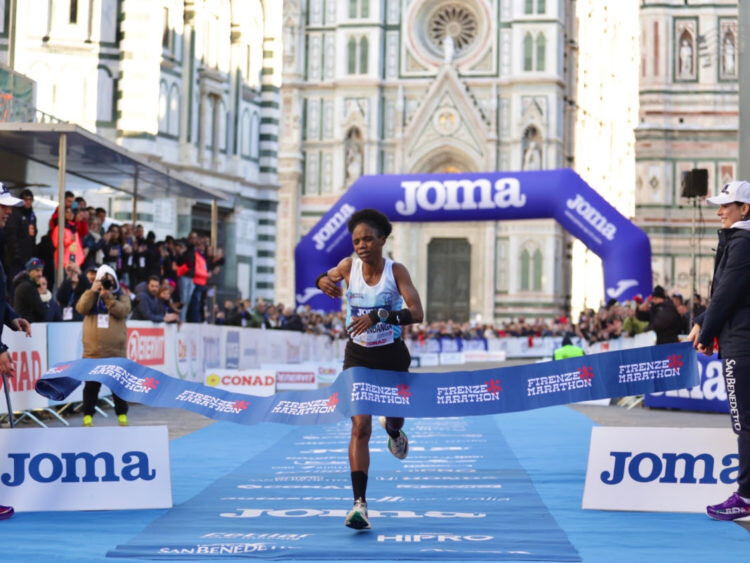
“ I had a good race until km 39, then I had some intestinal problems but I held on, I understood that I could win. I prepared well by training also at altitude but I didn't expect to be able to win, I'm very happy. I thank the Army for their constant support, after more than a year of recovery from various injuries. I also had surgery for a hernia in my groin. My dream is to be able to give continuity and grow, next year there are the European Championships in Rome, I would like the blue jersey for the half marathon."
The women's race
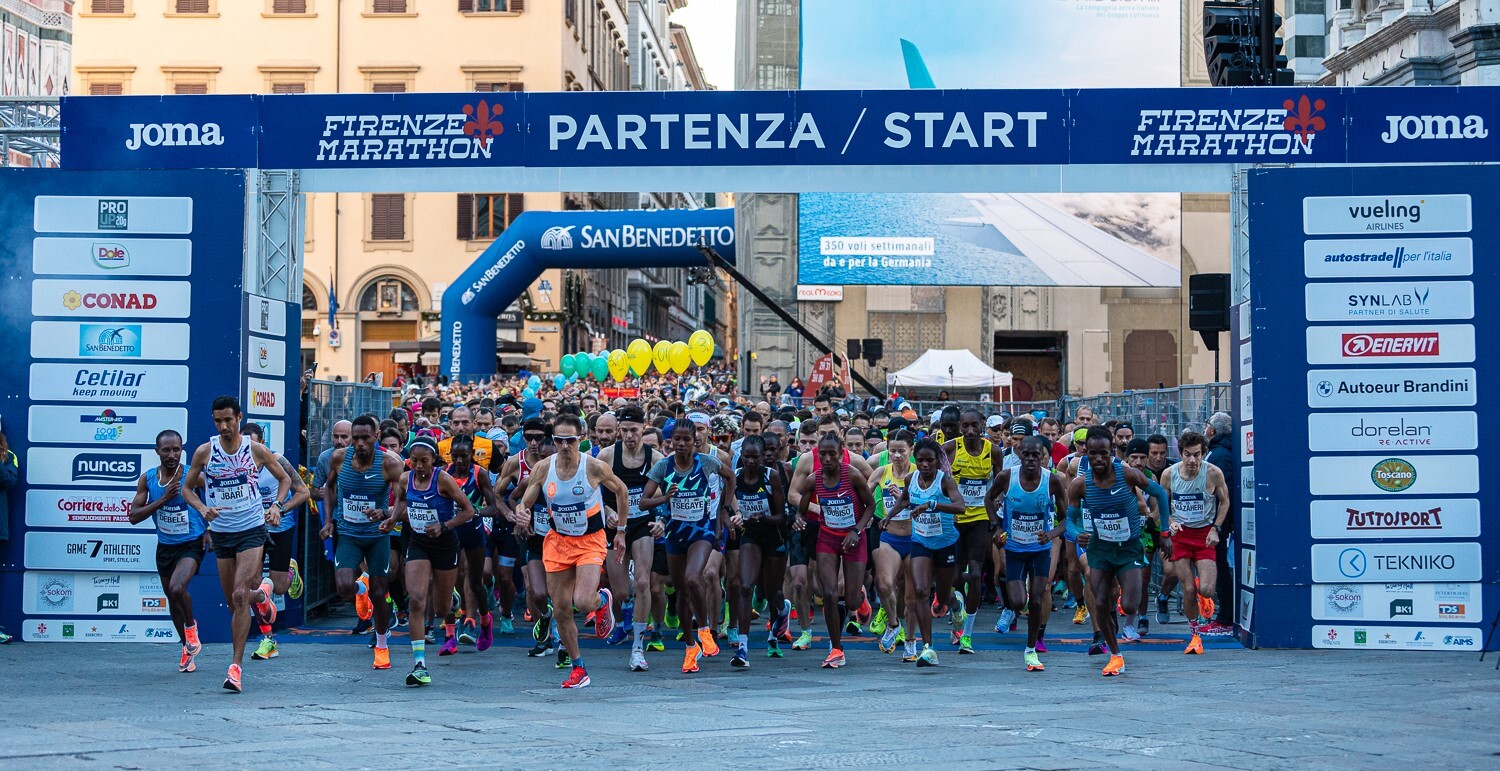
In the women's race, victory in 2:25'54" for the Rwandan Clementine Mukandanga (GS Orecchiella Garfagnana), already third in 2018 and 2022 and who improves her personal best by approximately 3', the previous record of 2h28'00".
“I live in Siena where I train by running up to 120 km a week, especially quality work. I am very happy to have achieved my personal best and to have won this race in which I had been on the podium other times", said the winner.
Silver medal for the Kenyan Rebecca Cheptegei , who reached the finish line in 2h27'08” followed by the Tanzanian Failuna Abdi Matanga , third in 2h28'58”. First for Italy, Maria Gorette Subano (CUS Pro Patria Milano) who, on her distance debut, concluded her efforts in 2h45'22”.
The leading trio of Rebecca Cheptegei, Failuna Abdi Matanga and Purity Jeptoo Cheromei took the lead at the fifth kilometer in 17'04” passing a few meters ahead of Merci Jeptoo Tuitoek and Clementine Mukandanga.
The leading group passed the 10km mark in 34'20”. The positions remained unchanged at 15 km with a passage in 51'44”. Cheptegei, Matanga and Cheromei broke away at the 21km mark in 1h12'36”. Matanga and Cheptegei increased the pace and passed in 25km 1h25'56”. The two leading athletes remained firmly in the lead until the passage to the 30 km mark in 1h43'11”. The twist occurred in the following kilometers when Mukandanga began the comeback from fifth position.
The Rwandan reached Matanga and Cheptegei and took the lead at 35 km. Mukandanga climbed to the top step of the podium of the Florence Marathon for the first time after two third places in the 2018 and 2022 editions. The African athlete resident in Siena improved her previous personal best of 2 by almost three minutes: 28:00 achieved in Florence in 2022. Rebecca Cheptegei, athlete credited with a personal best of 2h22'47" in Abu Dhabi in 2022, placed second in 2h28'08" ahead of Matanga (2h28'58") and Cheromei Jeptoo (2:31'30”).
(11/27/23) Views: 93Diego Sampaolo
Kenya's Philimon Kiptoo Kipchumba set an event record in the men's race at the Shanghai Marathon
Kenyan runner Philimon Kiptoo Kipchumba emerged victorious from a three-man battle in the last kilometers at the Shanghai Marathon on Sunday, setting an event record time of two hours five minutes and 35 seconds.
His winning mark surpasses the previous record, set by his compatriot Paul Lonyangata in 2015, who completed the 42.195-kilometer race in 2:07:14.
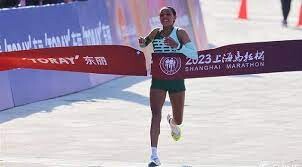
"The weather was fine today. I could see many people giving me motivation. At the end, it was very competitive, so I tried to push at the 42nd kilometer, and that is how I managed to be position one," said Kipchumba.
Alphonce Felix Simbu of Tanzania finished just four seconds behind, claiming second place.
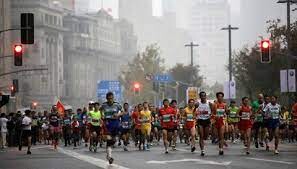
Ethiopia's Siranesh Yirga Dagne, completing the race in 2:21:28, clinched the women's title.
Having participated in the Shanghai Half Marathon previously, Dagne is quite familiar with the city. "During the race, the spectators on both sides of the track are very enthusiastic. I kissed the ground [after winning the competition.] The scenery of the city is also very beautiful," she said.
Wu Xiangdong was the first Chinese runner to finish the men's race, clocking in at 2:11:53. Zhang Deshun led the Chinese female runners with a time of 2:28:16.
In 2020, the Shanghai Marathon became the first marathon event on the Chinese mainland to be recognized as a Platinum Label Road Race by World Athletics.
According to the organizers, about 12 percent of the 38,000 participants in the 2023 event are from overseas. Among the Chinese runners, more than 10,000 come from outside Shanghai.
(11/27/23) Views: 87

